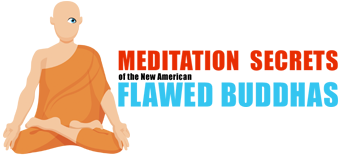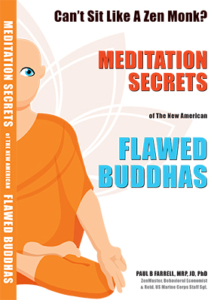Last Updated on October 8, 2020 by Paul Farrell, MRP, JD, PhD

Personal Journals! In writing your life story, memoirs, diaries, letters… you are one with the source of all meditation!
“Why should we write?
We write because it is human nature to write. Writing claims our world It makes it directly and specifically our own.
We should write because human are spiritual beings and writing is a powerful form of prayer and meditation, connecting us to our own insights and to a higher and deeper level of inner guidance as well.”
– Julia Cameron, The Artists Way
Journal writing is a popular meditation tool because it focuses people naturally – and it works. We all have a story to tell, although for many it is personal and private and often untold. And yet, it is who we are – our life, our soul, our story, and it longs to be told, even if just to yourself. It is expressed in many ways, some will verbalize the story, some express the message in their actions and behavior, many others feel compelled to put our story on paper, in private journals.
In high school I keep diaries. Later, letters, albums and memoirs when I was with the Marines and traveling in Asia. And throughout my adult life, volumes of journals. Writing seemed easy, until I spent eight hours struggling with my first college English paper, a one-page three-hundred word epic that earned a “D” grade.
Listen to Your Inner Voice Demanding to be Free!
But criticism never stopped me. Yes, it hurts, but in the end you get over it, it’s just one more obstacle in life to overcome. You find out why. Then you do it better next time out of the blocks. Remember: We all have a story to tell. And it will come out. That’s why journal writing is so natural for meditation.
Demons and gods, little boy and little girl voices all demand release from deep in our heart and soul. And in my case, an overload of childhood memories about drunken, angry parents who suffered their own demons, memories that still haunt me, and to this day still find their way into my journals.
Writing is a Release Valve
As a result, most of my life I’ve had to live with regular bouts of acute anxiety and panic attacks, although I didn’t talk much about them and hide them well. Today I realize that for many others like me, writing is a release valve, an escape pod, a safe haven for these memories. If you and I sat down, I know your story, like mine, would also have a storehouse of haunting memories that all too frequently emerge unpredictably and uncontrollably from deep within to overwhelm the rational façade we present to the world.
The “Phantom” has a Mind of its Own
Call it meditation, prayer, therapy, journalizing. Call it whatever you like, within each of us there is a secret story that wants to be told. It has a mind and a drive of its own. As science fiction master Ray Bradbury put it in Zen in the Art of Writing:
“I do not write. The other me demands emergence constantly … to tell me who I am behind this mask. He the Phantom is, and I façade.”
For some, journal writing is painful because the secrets are so dark and the risk of exposure so frightening that resistance seems impossible to overcome. For others it is an escape from reality, a comforting sanctuary, a welcomed relief. And a rich mixture of both for so many of us.
Even Doing “Too Much” Meditation Works
There was one ten-year period when I was newly recovering from years of self-destructive alcoholism, where I would sit obsessively and write in my journals, often for hours on end, exploring all the incredible insights triggered during therapy sessions and self-help program inventories. I was also working sixty-hour weeks on Wall Street, writing reports and professional articles, and on evenings and weekends writing screenplays and a musical comedy.
Finally, I felt so trapped in this obsession to escape into the comfortable safe territory of my journals that I had a friend toss a bankers box filled with ten years of my journals into a dumpster – in an undisclosed location – so I that wouldn’t change my mind and go retrieve it.
Did that dumpster dump set me free? Yes. Temporarily. Did it stop me? No! “The truth is that writing cannot be given up,” says Julia Cameron. Oh you may get angry, even hate it, but never for very long. Whether professional or amateur, “it” will quietly come clawing back to the surface. In the past couple decades the “other me,” as Bradbury calls it, has written eight books and over three million words as a journalist…and another twenty volumes of journals!
No Wrong Way To Meditate In Your Journals!
For most of my life journal writing has been the perfect way to meditate. It works for me, and it obviously works for millions of others. Julia Cameron is unquestionably the world’s leading guru on the subject, thanks to her classic, The Artist’s Way, the recognized bible of journal-writing meditation. She says “Morning Pages,” as she call them, “are my way of meditating, I do them because they work.” Get it? Journal writing works as meditation!
And they “are not intended for writers only … they work for anyone for painters, for sculptors, for poets, for actors, for lawyers, for housewives, for anyone who wants to try anything creative … Lawyers who use them swear they make them more effective in court. Dancers claim their balance improves, and not just emotionally.”
And it’s Simple to Do
Thankfully, journal meditation is very simple to do. Too simple for most traditional meditation gurus. There are no secret rituals or special format, no mantras or chants, no breathing exercises, no unusual diagnoses, no cryptic terms, and no detailed steps to follow. In fact, meditation gurus marvel at the utter simplicity of this one:
“The tool I ask you to undertake now is the most profound writer’s tool I have devised or experienced,” says Cameron. “This tool is the bedrock of a writing life. Morning Pages bear witness to our lives. They increase our conscious contact with spiritual guidance.” They are “a potent form of meditation for hyperactive Westerners. They amplify what spiritual seekers call ‘the still small voice’.”
And easy to do: “Morning Pages are three pages of daily longhand, strictly stream of consciousness. They are about anything and everything that crosses your mind. They may be petty, whiny, boring, angry. They may be cheerful, illuminating, insightful, and introspective. There is no wrong way to do them.” Just write three pages!
When I first read The Artist’s Way back in the mid-nineties I thought: How wonderful, I have been meditating this way naturally — and without “thinking” about it — most of my life! So I knew they worked because I had long-term proof of what she meant: “It is impossible to write morning pages for any extended period of time without coming into contact with an unexpected inner power.”
Writing, “Listening” to a Secret Power Within
That’s exactly what I found using this journal meditation tool: “Higher forces speak to us through writing. Call them Inspiration, Muses, Angels, God, Hunches, Intuition, Guidance, or simply a good story – whatever you call them, they connect us to something larger than ourselves that allows us to live with greater vigor and optimism.”
You don’t even have to wait until tomorrow morning – right now, write now, write three pages or one or ten. Trust the process. Let the magic unfold. Tell your story to yourself, this is the one natural way each of us meditates.
About the Author
Dr. Farrell is a Behavioral Economist. His books include The Millionaire Code; The Millionaire Meditation: Stress Management for Wall Street, Corporate America & Entrepreneurs; The Zen Millionaire; The Winning Portfolio; Expert Investing on The Net; Mutual Funds on The Net; and The Lazy Person’s Guide to Investing.
He also published 1,643 columns on DowJones-MarketWatch and for years was their #1 traffic-generating columnist. Before the Internet, he edited & published FNX: Future News Index, a financial newsletter for stock market traders. Earlier he was a Wall Street investment banker with Morgan Stanley, Executive Vice President of the Financial News Network; and Associate Editor of the Los Angeles Herald Examiner.
He has a Doctorate in Psychology, Juris Doctor, Masters in Regional Planning and Bachelor of Architecture. He worked on the Esalen organic farm and served in the U.S. Marine Corps as Staff Sergeant in aviation computer technology.








